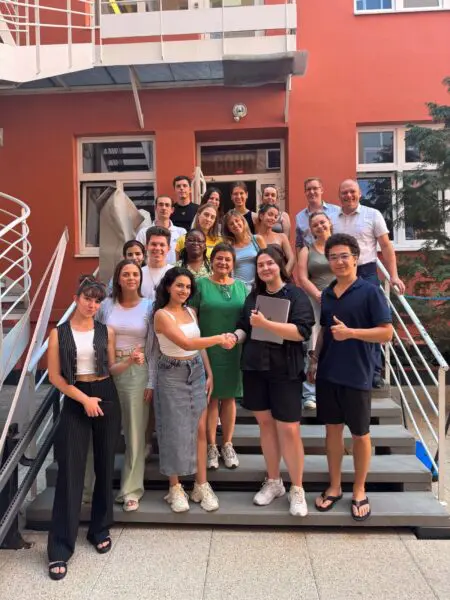
Prague, Czechia
Politics, Media and Campaigning
When:
03 August - 14 August 2026
Credits:
5 EC
Read more
Political Science
When:
07 July - 25 July 2024
School:
Institution:
University of Amsterdam
City:
Country:
Language:
English
Credits:
6 EC
Fee:
1750 EUR

Does climate crisis spell the end of human civilization or a chance for a major breakthrough in global cooperation and multilateralism? Is the resurgence of nativist attitudes a transient backlash or the dawn of the post-globalist era? Will mission-driven business dominate future markets or become yet another trite gimmick? Those are the types of questions participants in this course will ponder, working in teams, and focusing on practice over theory.
When it comes to our infinitely complex global system, there are many questions and very few answers. The words of Virginia Burden when considered within our global context ring true today more than ever, “Cooperation is the thorough conviction that nobody can get there unless everybody gets there.” Participants in this program will explore the pillars on which the global system is built, from the basics of the Bretton Woods system, to the G7 and G20, and the emerging multilateral institutions within BRICs. We’ll consider the past, present and future role of a nation-state, global corporation, civil society through the prism of globalization.
Subjects include: economic diplomacy, multi-stakeholder institutions, the role of civil society, and the power of an individual to drive change. Throughout the programme, students will work in teams and present their critique of existing institutions, brainstorm concrete proposals to strengthen global cooperation, and offer fresh solutions to the policy dilemmas that the world is struggling to address.
Andrew Chakhoyan.
For current university students (Bachelors and Masters) in the social/political sciences, business, or public administration with an interest in global affairs. Also for young professionals with a desire to continue their education in this field and expand their understanding of international relations.
Without robust global cooperation, humanity can’t effectively address the challenges of the 21st Century (climate emergency, the rise of inequality, the impact of automation on jobs, AI safety, advancements in genomics and biotech, etc.). To improve global cooperation, we need to understand it first, and that’s the aim of this course - to better familiarize the students with the existing multilateral system, explore its shortcomings, and gain an appreciation for what is at stake.
Fee
1750 EUR, The tuition fee includes all course materials, excursions and site visits, lunch on class days and a public transportation card.
Fee
875 EUR, Approximate housing fee for the duration of the course. Arranging housing through our office is optional.
When:
07 July - 25 July 2024
School:
Institution:
University of Amsterdam
Language:
English
Credits:
6 EC

Prague, Czechia
When:
03 August - 14 August 2026
Credits:
5 EC
Read more

Nijmegen, Netherlands
When:
29 June - 03 July 2026
Credits:
1 EC
Read more

Antwerp, Belgium
When:
23 August - 28 August 2026
Credits:
0 EC
Read more